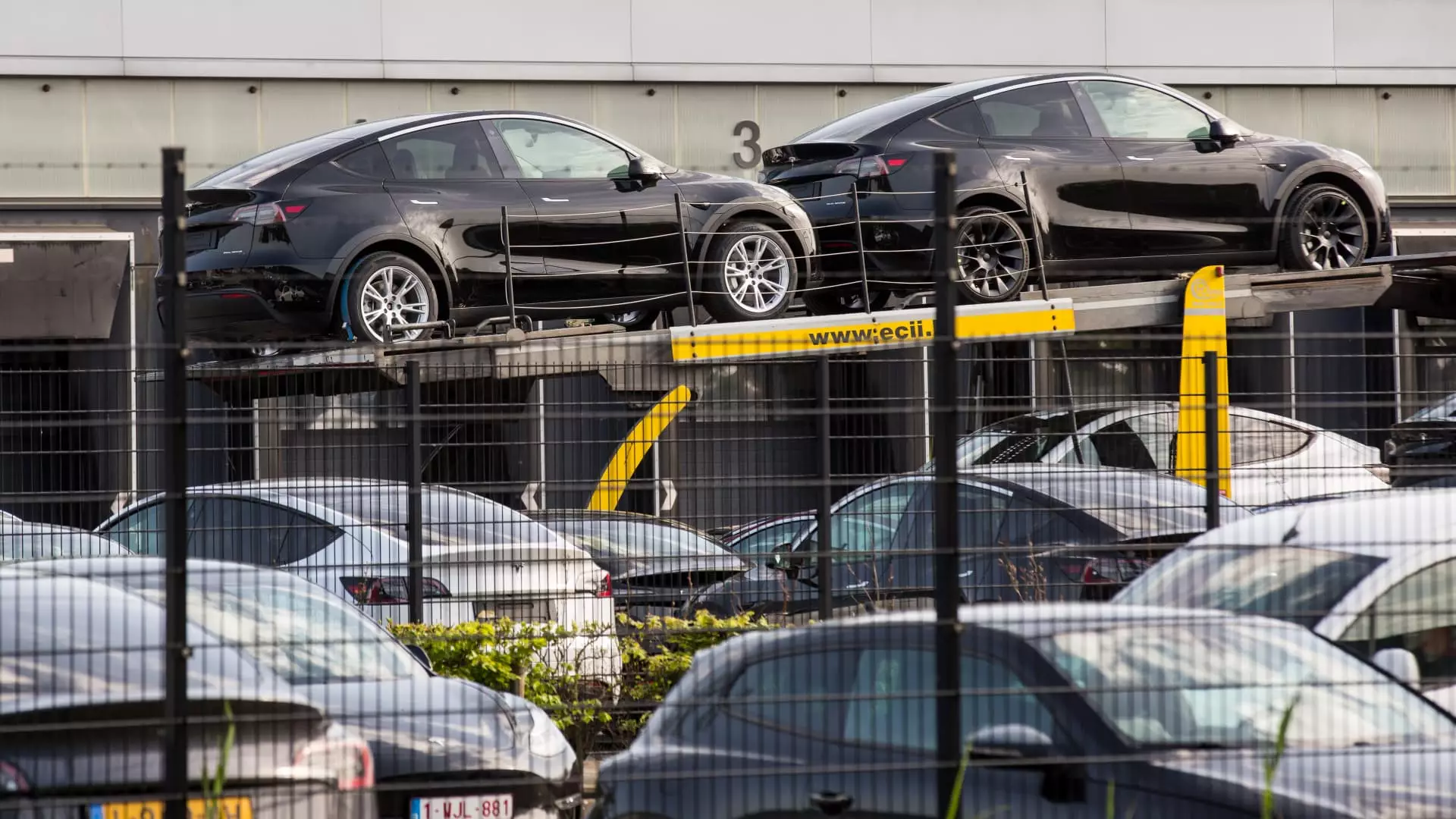Tesla’s shares experienced a significant increase following the release of second-quarter vehicle production and deliveries numbers that surpassed analyst expectations. In the second quarter of 2024, Tesla delivered a total of 443,956 vehicles and produced 410,831 vehicles, outperforming estimates compiled by FactSet StreetAccount.
Despite the positive news of exceeding delivery numbers, Tesla faced challenges such as a 4.8% decrease in deliveries compared to the previous year. The company attributed this decline to temporary factory shutdowns due to issues like an alleged arson attack at its Germany factory and shipping delays following conflicts in the Red Sea.
One of the contributing factors to sluggish sales for Tesla was the increased competition from other electric vehicle manufacturers, particularly in China. Additionally, brand erosion was noted as a concern in a recent survey, with CEO Elon Musk’s behavior and statements being cited as factors influencing consumer perception negatively.
To combat declining sales, Tesla introduced various incentives and discounts throughout the year to stimulate consumer interest. In China, the company rolled out a zero-interest loan offer to encourage customers to purchase a Model 3 or Model Y before the end of July.
In its 2023 annual filing, Tesla revealed that approximately 22.5% of its total sales revenue came from China, totaling around $21.75 billion. Despite efforts to drive sales, analysts from Wells Fargo anticipate a potential decrease in automotive gross margins for Tesla due to anticipated price cuts and lower volumes as the year progresses.
Overall, while Tesla managed to exceed analyst expectations with impressive second-quarter delivery numbers, the company still faces challenges in a competitive market landscape. By addressing issues such as brand erosion and shifting consumer preferences, Tesla can position itself for sustainable growth and success in the electric vehicle industry.


Leave a Reply